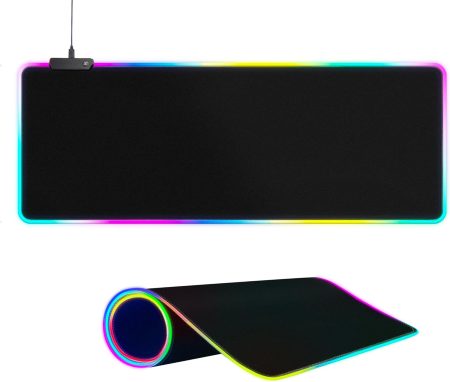As a computer owner, it can be frustrating when your laptop starts to lag due to overheating. Besides slowing down your system, this overheating can cause damage to your computer. So, how do you solve the overheating problem?
Sometimes, an air cooler might do this trick, but only sometimes. You might need to use a liquid cooling system. Intel recommends this cooling system for certain processors, and this article will cover what those are. For which processor does Intel recommend using a liquid cooling system? Let’s look into it.
What Is a Liquid-Cooled Processor?
A liquid-cooled processor is a process that disperses heat using water as a coolant. This method involves cooling your processor using a fluid that moves around it. It is highly efficient and allows your computer to run smoothly, even at peak performance.
How Does a Liquid Cooling System Work?
A liquid cooling system works by absorbing heat into liquid coolants. This system has a radiator, fans coupled with the radiator, two tubes, a water block, and a pump.
All CPUs contain an Integrated Heat Spreader (IHS) that acts as a protector and directs heat from the CPU to the cooler.
After the heat passes through the IHS, it moves to the metal base plate located in the cooler. This baseplate is usually made of aluminum or copper and is attached to the IHS using a conductive thermal paste.
The metal baseplate, in turn, is attached to the water block containing a liquid coolant, which absorbs the heat. Most times, the coolant used in the system is distilled water infused with a biocide. The purpose of this biocide is to prevent corrosion.
Furthermore, some companies include a solution in their liquid cooling system that gives the coolant bright colors to make them more attractive. After absorbing heat, the pump carries the coolant through one of the two tubes to the radiator, allowing air to reach the coolant and reduce its temperature.
Lastly, the fan carries heat from the radiator, returning the coolant to normal temperature. Now, the coolant returns to the water block through the second tube. This process repeats itself over and over again.
There are two categories of liquid cooling systems. These are the AIO (All-In-One) and custom-made systems. Despite their differences, these types of systems work the same.
It might be more convenient to buy a ready-made set because building a liquid cooling system requires experience and patience.

What Processors Does Intel Recommend Liquid Cooling System?
Intel recommends using a liquid cooling system for its higher-end products. Here is a breakdown of which processors need this cooling system and why.
Intel Core i7 and Core i5 (12th Gen)
Intel made these processors to be able to handle all types of workloads with top-notch efficiency at maximum performance. The processors use E-Cores, Alder Lake architecture, and a combination of P-cores to give you the very best.
To give you an idea of how powerful they are, you should know that they support multi-threading and are roughly 12% to 17% faster than their predecessors (11th Gen).
These processors are not the most powerful in the line-up, and some cases may not require a liquid cooling system. Regardless, getting one may be a good idea, especially if you plan on using your processor at its peak.
Intel Core X-Series
The X-series has up to 18 cores that can operate at 4.60 GHz Turbo Frequency and is designed for large data processing. Not only does this work at the highest capacity, but it also allows hyper-threading. This implies that there is more pressure on the CPUs.
Intel created the X-series specifically for video editors and professional gamers. Regular users might consider these specs a bit too much. However, this is not overkill for those who need high-performing machines.
So, if you have an X-series-powered computer as a hardcore gamer or someone who needs to perform process-intensive jobs, you should consider using a liquid cooling system. The cooling system will keep your CPU cool, even working at maximum performance.
Intel Core i9
The Intel Core i9 is the latest processor from the Intel Core line-up. As such, it should be no surprise that this iteration would be the most powerful processor.
The Intel Core i9 was created for the most intensive tasks and gaming experiences. Hence, if any processor required a liquid cooling system, it would be the Core i9. You would require this cooling system to keep your computer’s temperature down, especially when using it at 5GHz and above.
Types of Computers That Require Liquid Cooling

Intel suggests that anyone using their highest-performing processors should consider using liquid cooling systems. Essentially, premium gaming computers and overclocked workstation computers usually need liquid cooling.
When playing games or performing rigorous tasks, your computer will work harder than normal to keep up, which leads to more heat. If this heat does not go somewhere else, it could damage your hardware.
Should All PCs Use a Liquid Cooling System?
You do not need a liquid cooling system for a PC you use for day-to-day activities, such as surfing the web or watching a movie. For PCs like this, you can use an air cooler even when you use all CPU cores at max capacity. You wouldn’t even have to worry about overheating or hardware damage.
Furthermore, air coolers are more affordable than liquid cooling systems, so why spend extra money on something you don’t need? It is better to buy an air cooler knowing fully well that it will get the job done as opposed to buying the pricier liquid cooling system, which could break and need replacement. At the end of the day, you will end up spending money on something you should not have to.
Conclusion
A liquid cooling system is a fantastic option if you want a more efficient and quieter way to keep your computer cool. Not only that, but it looks better than an air cooler.
However, not every computer requires a liquid cooling system. Intel recommends you use a liquid cooling system for powerful CPUs working at maximum capacity. These include Core i7 and i5 (12th Gen.), Core X-series, and the latest Core i9.
However, computers with lower specifications can still benefit from a liquid cooling system, especially if you intend to overwork them. In that case, it would be a good idea to invest in the cooling system, no matter how pricey.














